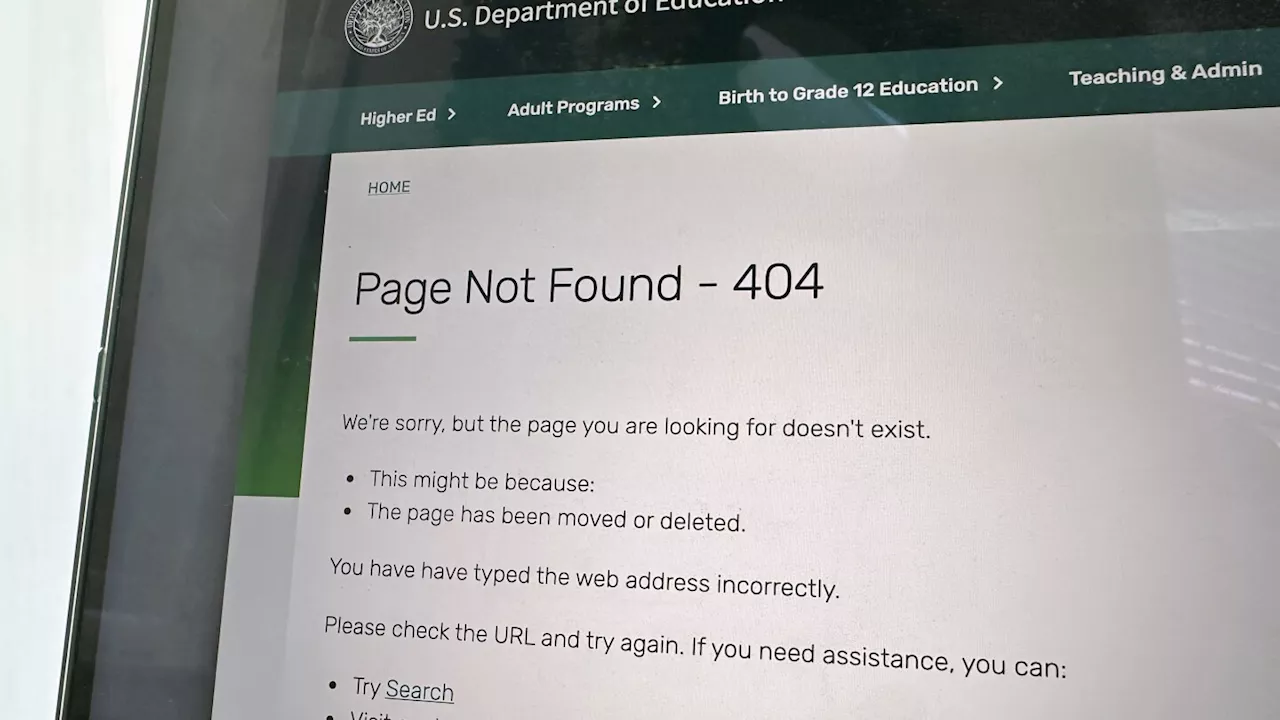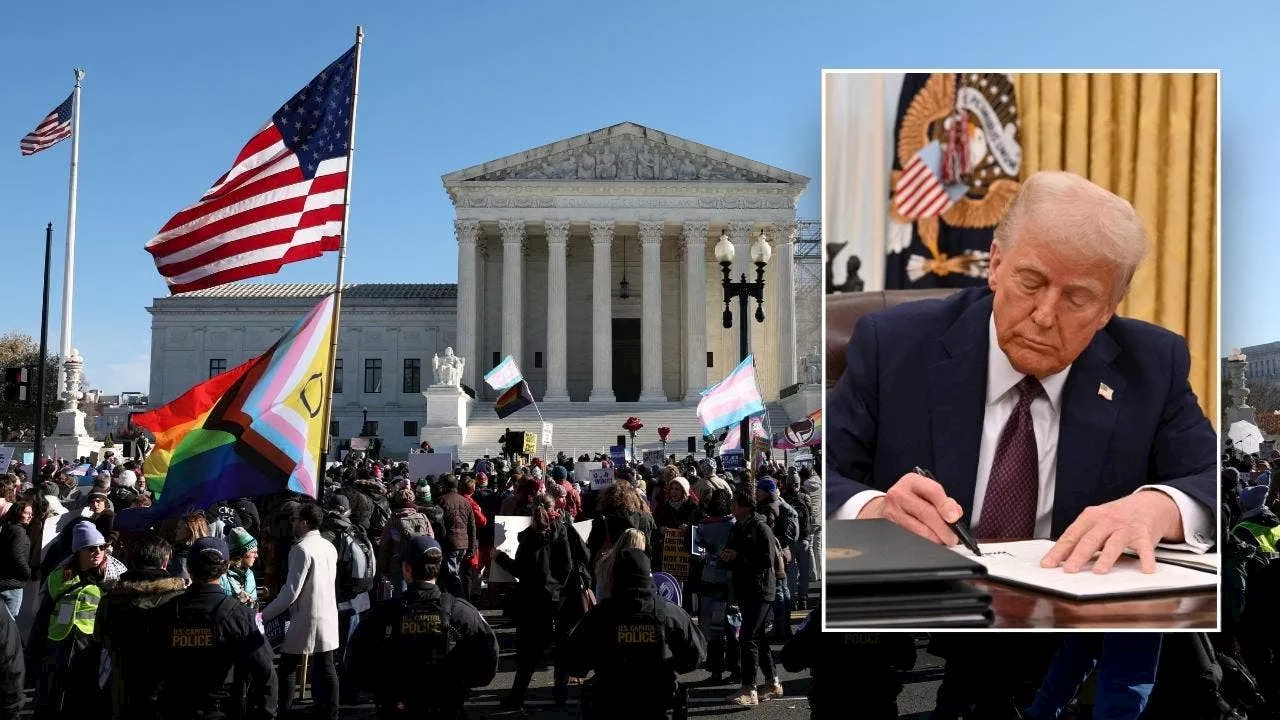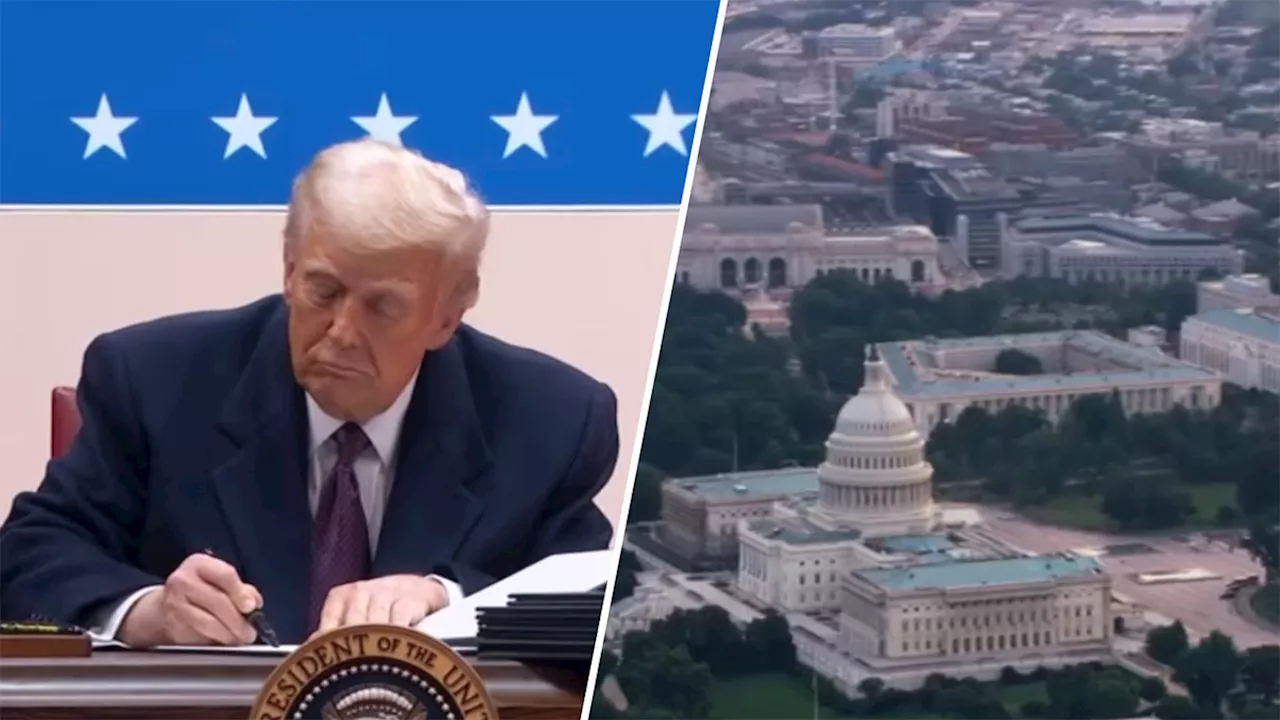Multiple federal agencies, including the CDC and the Department of Transportation, have instructed employees to remove preferred pronouns from their email signatures by the end of Friday. This order aligns with President Donald Trump's executive orders aimed at restricting the use of gender-identity language in government communications.
Federal agencies have ordered employees to remove “preferred pronouns” from their email signatures by end of day on Friday, in keeping with President Donald Trump’sby ABC News revealed that employees from multiple federal agencies were told to remove pronouns from email signatures. The memos cite two executive orders Trump“Pronouns and any other information not permitted in the policy must be removed from CDC/ATSDR employee signatures by 5.p.m.
“Employees at the Department of Energy who received a similar notice Thursday were told this was to meet requirements in Trump’s executive order calling for the removal of DEI ‘language in Federal discourse, communications and publications,'” the report continues. Agencies shall remove all statements, policies, regulations, forms, communications, or other internal and external messages that promote or otherwise inculcate gender ideology, and shall cease issuing such statements, policies, regulations, forms, communications or other messages. Agency forms that require an individual’s sex shall list male or female, and shall not request gender identity.
FEDERAL AGENCIES PRONOUNS TRUMP ADMINISTRATION EXECUTIVE ORDERS GENDER IDENTITY
United States Latest News, United States Headlines
Similar News:You can also read news stories similar to this one that we have collected from other news sources.
 Trump order ending federal DEI programs leaves agencies and stakeholders on uncertain groundFederal agencies, employees and contractors are trying to process how President Donald Trump’s sweeping anti-DEI executive order will upend their work.
Trump order ending federal DEI programs leaves agencies and stakeholders on uncertain groundFederal agencies, employees and contractors are trying to process how President Donald Trump’s sweeping anti-DEI executive order will upend their work.
Read more »
 Trump order ending federal DEI programs leaves agencies and stakeholders on uncertain groundFederal agencies, employees and contractors are trying to process how President Donald Trump’s sweeping anti-DEI executive order will upend their work.
Trump order ending federal DEI programs leaves agencies and stakeholders on uncertain groundFederal agencies, employees and contractors are trying to process how President Donald Trump’s sweeping anti-DEI executive order will upend their work.
Read more »
 Federal Agencies Crack Down on Hidden DEI Programs Following Trump OrderActing heads of federal agencies, including NASA and the Department of Homeland Security, issued warnings to government employees regarding attempts to conceal Diversity, Equity, Inclusion, and Accessibility (DEIA) programs following President Trump's executive order terminating these initiatives.
Federal Agencies Crack Down on Hidden DEI Programs Following Trump OrderActing heads of federal agencies, including NASA and the Department of Homeland Security, issued warnings to government employees regarding attempts to conceal Diversity, Equity, Inclusion, and Accessibility (DEIA) programs following President Trump's executive order terminating these initiatives.
Read more »
 Federal Agencies Remove Diversity Resources Following Trump Executive OrderSeveral federal agencies have removed resources for underrepresented Americans from their websites after President Donald Trump signed an executive order dismantling diversity and inclusion programs across the government. Trump has called for all DEI staff to be put on paid leave and eventually laid off. Documents on DEI have been removed from websites at agencies including the Office of Personnel Management, State Department and Department of Homeland Security.
Federal Agencies Remove Diversity Resources Following Trump Executive OrderSeveral federal agencies have removed resources for underrepresented Americans from their websites after President Donald Trump signed an executive order dismantling diversity and inclusion programs across the government. Trump has called for all DEI staff to be put on paid leave and eventually laid off. Documents on DEI have been removed from websites at agencies including the Office of Personnel Management, State Department and Department of Homeland Security.
Read more »
 Trump Signs Executive Order Challenging 'Gender Ideology' in Federal AgenciesPresident Trump issued an executive order during his first week in office challenging 'gender ideology' and promoting 'biological truth'. The order directs federal agencies to recognize only two sexes — male and female — based on immutable biological characteristics. This comes as the Supreme Court is poised to rule on two significant gender-related cases this year, potentially leading to further controversy.
Trump Signs Executive Order Challenging 'Gender Ideology' in Federal AgenciesPresident Trump issued an executive order during his first week in office challenging 'gender ideology' and promoting 'biological truth'. The order directs federal agencies to recognize only two sexes — male and female — based on immutable biological characteristics. This comes as the Supreme Court is poised to rule on two significant gender-related cases this year, potentially leading to further controversy.
Read more »
 Trump Signs Executive Order Mandating In-Person Work for Federal EmployeesPresident Trump has issued an executive order requiring federal employees in the executive branch to return to full-time in-person work. The order aims to eliminate remote work arrangements and directs department and agency heads to take steps to implement this change as soon as practicable. While the directive doesn't set specific timelines, it gives agencies flexibility in how to enforce it, including the possibility of granting exemptions. The order has sparked mixed reactions, with Republican lawmakers supporting it and federal worker unions pushing back.
Trump Signs Executive Order Mandating In-Person Work for Federal EmployeesPresident Trump has issued an executive order requiring federal employees in the executive branch to return to full-time in-person work. The order aims to eliminate remote work arrangements and directs department and agency heads to take steps to implement this change as soon as practicable. While the directive doesn't set specific timelines, it gives agencies flexibility in how to enforce it, including the possibility of granting exemptions. The order has sparked mixed reactions, with Republican lawmakers supporting it and federal worker unions pushing back.
Read more »
